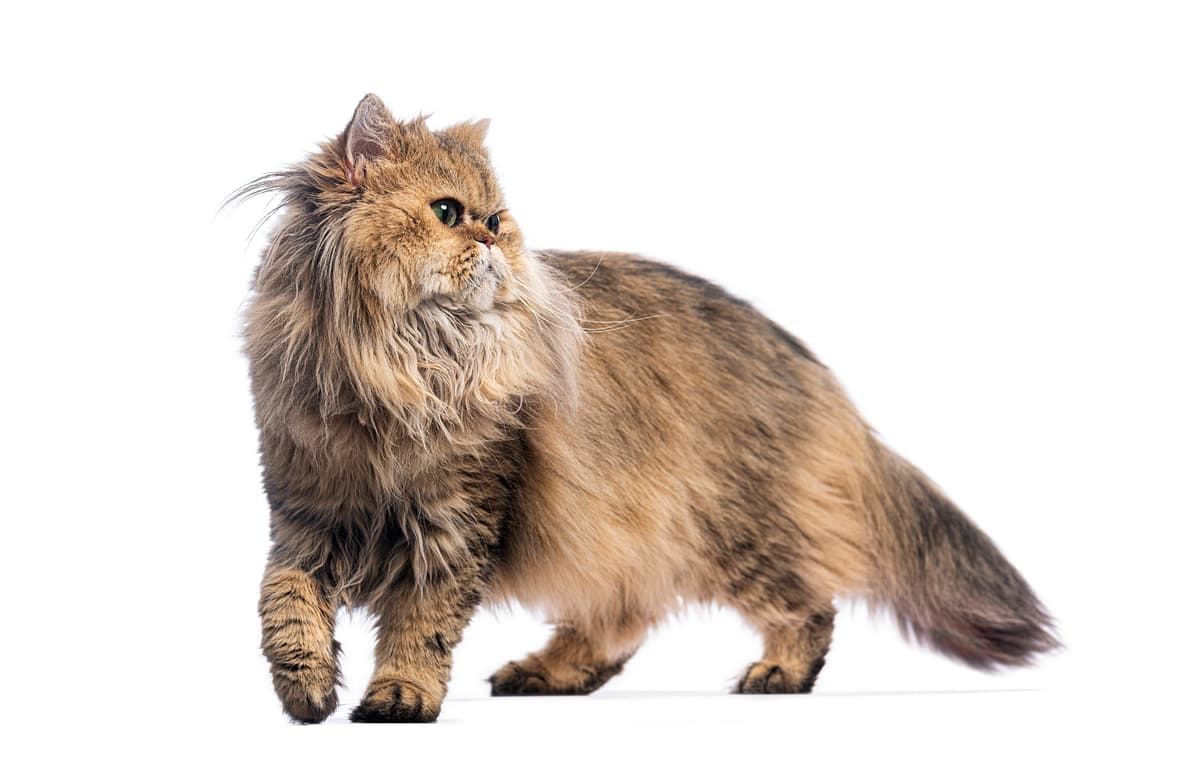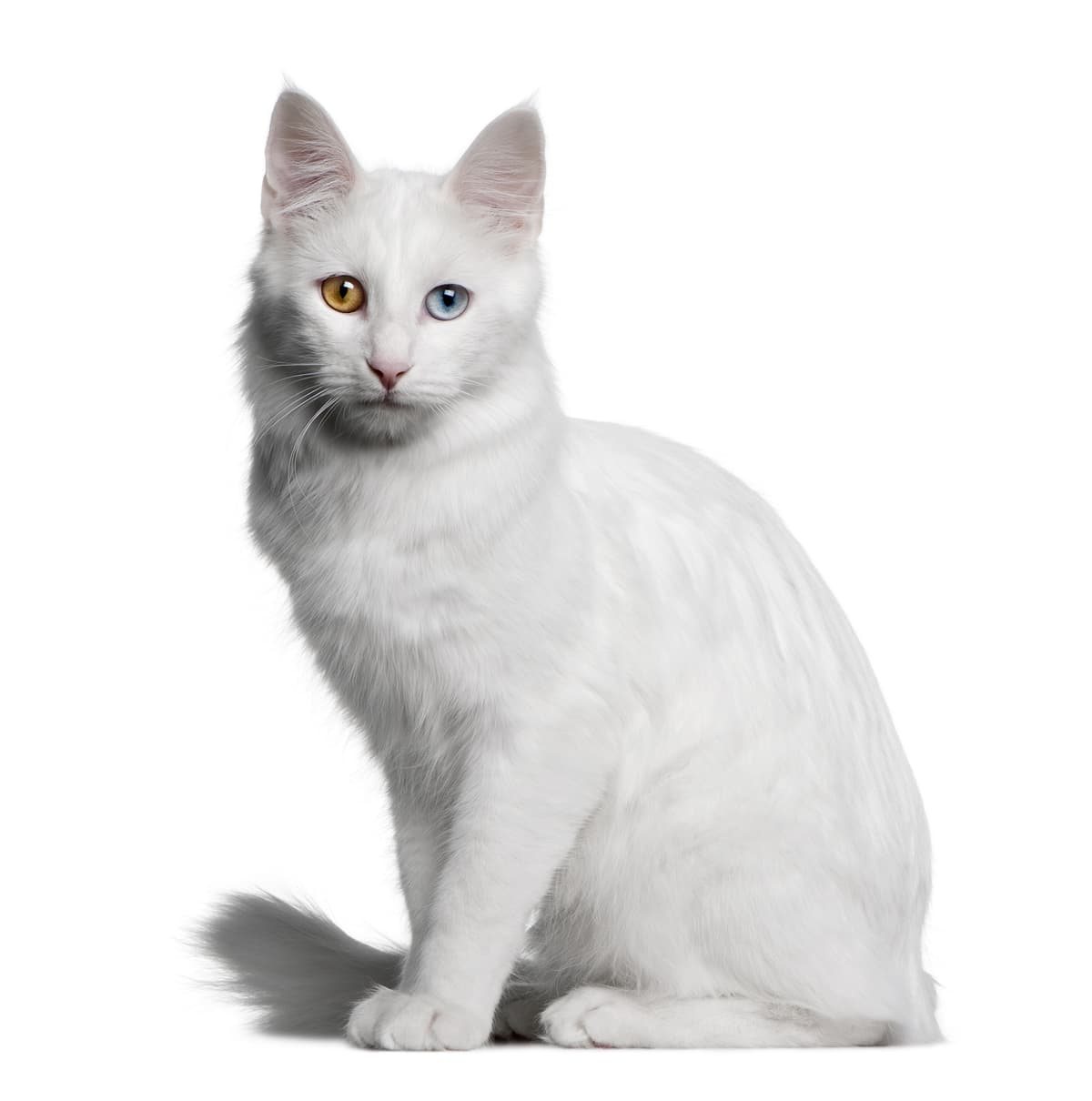Persian vs Turkish Angora
Discover the differences between Persian and Turkish Angora to make the best choice for your situation.
Try different breeds

Persian
Luxurious long fur, expressive eyes, and a calm presence define this affectionate breed. Persian cats thrive as gentle companions, bringing quiet elegance to any home.

Turkish Angora
Graceful, playful, and highly intelligent, this breed thrives on interaction and affection. Renowned for its silky coat and expressive eyes, it makes a devoted companion.
Quick comparison
Medium
3.5–6.0 kg
Longhaired, dense undercoat
12–17 years
3.0–5.5 kg
Low activity needs
Medium
3–5 kg
Longhaired, silky
12–16 years
2.5–4 kg
High energy
Personality & behavior
Compare the personality traits and behavioral characteristics of both breeds.
Persian
Affectionate and gentle with family members
Learns routines but not highly problem-solving
Prefers lounging over being active
Enjoys quiet play, not very lively
Adjusts to change but prefers stability
Turkish Angora
Affectionate and sociable with family and guests
Quick learner, problem solver, enjoys mental challenges
Very active, often seeks out stimulation and activity
Loves interactive games and engaging with people
Adjusts well to new environments and changes
Care needs
Exercise, grooming, and daily care requirements
Persian
Polycystic kidney disease, respiratory issues
Turkish Angora
Deafness (in white cats), hypertrophic cardiomyopathy
Suitability
How well each breed fits different living situations and families
Persian
Good choice
Their gentle temperament suits new owners but grooming needs require extra commitment
Excellent fit
Low activity level and quiet nature are well-suited for small living spaces
Not ideal
They prefer calm environments and may be stressed by frequent noise or activity
Generally suitable
Patient and tolerant, but supervision with very young children is recommended
Usually compatible
Can get along with other pets if properly introduced and socialized
Poor choice
Persians dislike being left alone and may develop stress or behavioral issues
Turkish Angora
Good option
Intelligent and social, but may need patience with their active personality
Very adaptable
Thrives in apartments if given toys and enough interaction
Highly suitable
Active and playful nature matches busy households well
Usually gentle
Tolerant but needs supervision with very young children
Gets along well
Friendly with other pets when introduced properly
Not ideal
Dislikes being alone and may develop anxiety if left too long
Breed strengths
What each breed excels at and their best qualities
Persian
- Gentle and calm temperament
- Affectionate with family members
- Adapts well to indoor living
- Low prey drive and minimal hunting
- Quiet and rarely vocalizes
Turkish Angora
- Intelligent and quick to learn new tasks
- Affectionate toward family members and children
- Playful and enjoys interactive activities
- Adaptable to various living environments
- Low-maintenance grooming due to fine coat
Challenges & considerations
Potential challenges and considerations for each breed
Persian
- Requires daily grooming and brushing
- Prone to respiratory health issues
- Sensitive to heat and humidity
- Regular eye cleaning often necessary
- Can be less playful than other breeds
Turkish Angora
- Prone to separation anxiety if left alone
- Can be territorial with other cats
- Needs frequent mental and physical stimulation
- May develop hereditary deafness, especially in whites
- Sensitive to changes in household routines
Ready to choose your perfect breed?
Learn more about each breed or compare other breeds to find the perfect match for your lifestyle.
Discover more helpful tools
Make use of our other free tools to get the most out of your pet experience
